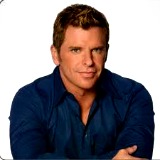A Vital Heart and Exercise are Best Friends
Eighty-year-old Stanford gerontologist Walter Bortz, author of The Roadmap to 100, tells us how your heart and exercise work together.
Dr. Bortz says, If you're smart, you can live a long time, because now we know it's not genes and not doctors. It's how you live your life.
We are a wonderful ensemble of genes. All these genes are little electric switches that must be tuned. The tuning of it is exercise. When you're fit, everything tunes correctly.
I'm Gene Millen, your Heart Health Coach. My experience in exercise for the heart includes 23 years working with hundreds of people who are looking for the best heart exercise.
I thought I knew all the right exercise principles, but the saying is true that you never get too old to learn.
I want to tell you about a heart excercise program that is extremely effective and takes far less time than the "conventional" programs which want you to spend hours in the gym to achieve your goals.
As I grow older, and (hopefully wiser) I have come to the conclusion that one of the things that keep us from becoming the best that we can be is our exercise habits...or lack thereof
One of Mark Twain's more insightful quotes is,
"Nothing so needs reforming as other people's habits."
With that in mind I am taking up the challenge to help you reform yours.
If you happen to be one of those with good intentions about doing more heart exercise but just haven't got a round to it this program is especially for you.
Some of you have been following Phyllis Diller's approach to fitness which is, "My idea of exercise is a good brisk sit."
 "The human heart doesn't need endurance training," says Dr. Al. Sears. Your
heart was designed to keep beating far into old age.
"The human heart doesn't need endurance training," says Dr. Al. Sears. Your
heart was designed to keep beating far into old age.
"Heart attacks happen during times of stress, when your heart needs more energy and pumping capacity, but doesn't have the reserve power that it needs."
The trouble with endurance exercise and jogging is that low intensity for long periods of time causes our bodies to store fat. Once you pass the 15 to 20 minute mark, you start burning fat during exercise.
This sounds like a good idea but our body just doesn't work this way.
Low intensity endurance exercise tells your body you need fat to burn as fuel during exercise.
As a result, your body will make and store more fat to prepare for your next run or aerobic workout -- a never-ending cycle making it impossible to get rid of that stubborn fat that never seems to go away.
I recently came across some new research about how our heart and exerise work best. Yes, it's possible to supercharge our sluggish metabolism and win the belly fat battle of the bulge.
This program is extremely effective and takes far less time than the "conventional" programs which coax you into spending hours in the gym to achieve your goals.
And the good news is that you don't have to give up all of your favorite foods, count calories or spend hours in the fitness center.
You may, however, have to unlearn a few things you thought you knew about your heart, eating, exercise and weight loss.After 23 years in the fitness business (and writing a book titled "Glycemic Index Weight Loss") I pretty much thought I had this all figured out. I discovered there was more to learn.
Dr. Charles, a Certified Wellness Practioner with an Advanced Nutrition Certification, has developed a comprehensive heart and exercise Program, that he calls The Fat Factor.
I have to admit I was a little skeptical when I first heard about Dr. Charles' heart and exercise program, but as I learned more I was surprised by his examination of all of the key factors to lose belly fat quickly and naturally.
If you are like I was for the first 59 years of my life, and have been putting off getting started on a heart and exercise program why not get started now? I recommend you click here to visit Dr. Charles Fat Factor site.
Let me know what you think about it.
We wish for you Vital Heart Health for a long, long time!
Gene Millen, Heart Health Coach Certifications/Accomplishments
- Completed Cardiac Rehabilitation Program of 200 sessions supervised by nurses and cardiologist.
- Gene has been certified as a Physical Fitness Specialist by the prestigious Cooper Clinic and Wellness Center in Dallas Texas
- Certification as a Medical Exercise Specialist included designing personalized exercise/wellness programs for those recovering from heart attack as well as those with high blood pressure, diabetes, heart pacemakers and more.
- Health and wellness articles have received more than 43,000 visits.
- Gene's column is published in Mid Valley Publications, with weekly circulation of 35,000 in the Central Valley of California.
